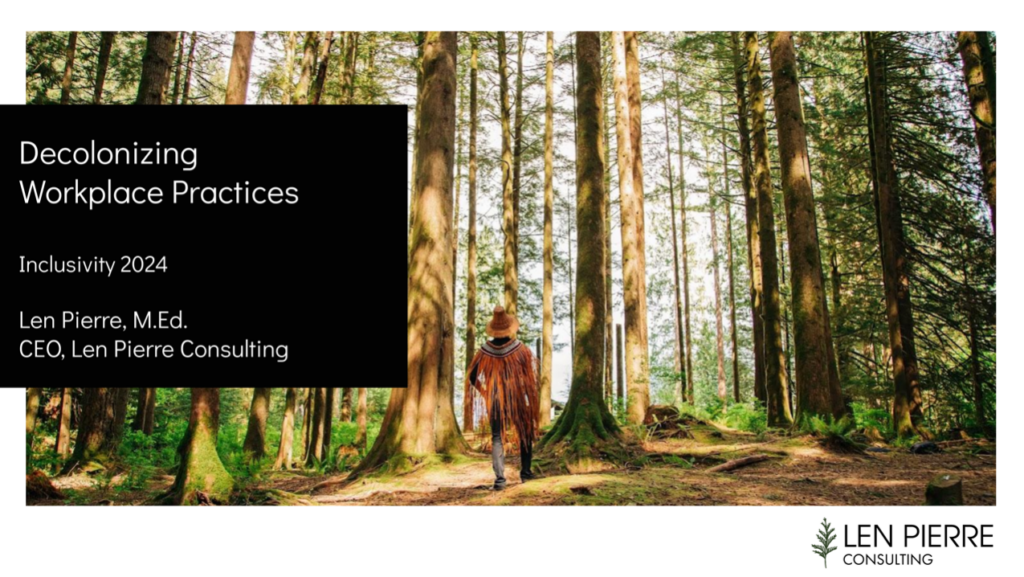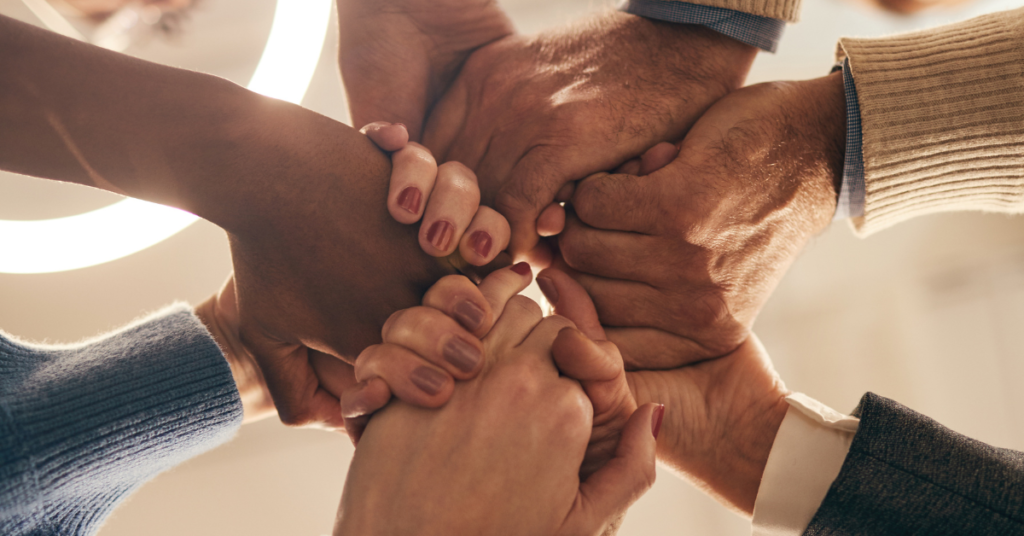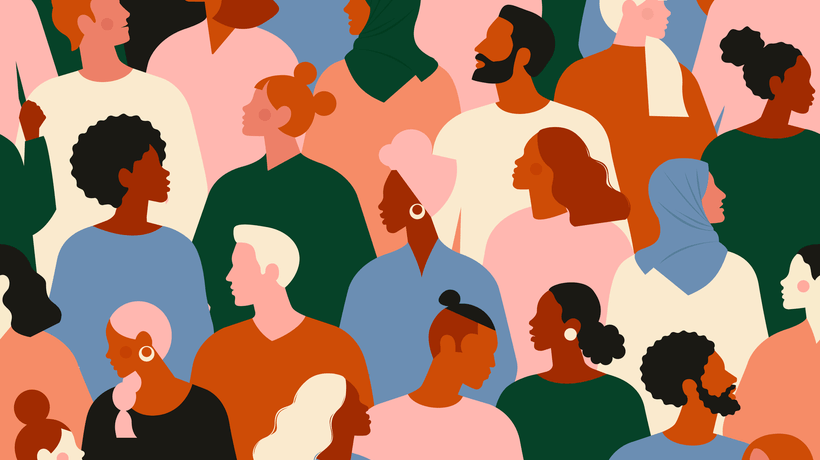During the many years that consultant Len Pierre has been working with organizations to support learning on reconciliation and Indigenous cultural safety, he has seen how discussions of colonialism can bring up strong feelings. Words such as “genocide” and “decolonization” can be emotionally triggering, he says.
Pierre always approaches these topics with kindness and respect, with the aim of creating a safe space, bringing people into the conversation, and equipping them with practical strategies and tools to move forward decolonization in their own lives and workplaces.
On June 12, 2024, in National Indigenous History Month, Pierre facilitated a webinar with Inclusivity CEO Wyle Baoween on “Decolonizing Workplace Practices.” Here we gratefully share five topics from this discussion, with thanks to Pierre for creating conditions for strong, heartfelt dialogue on essential issues.
Throughout the webinar, for which 3,000 people registered, Pierre encouraged participants to take the long view. “Colonialism in Canada was incredibly strategic, intensely intentional, and over a very long period of time,” he said. “So our work in decolonization needs to be equally strategic, and over a long period of time.”
The recording of the full hour-long webinar is available below, along with additional resources.
What is decolonization?
There is no universal definition of decolonization. Further, it is important to note that many Indigenous peoples do not like the term, which centres Eurocentric views. Overall, Pierre described decolonization as dismantling and disrupting the barriers that suppress Indigenous peoples. Decolonization is a framework, rather than an objective or outcome. It will be imperfect. In fact, the idea of perfection is in itself colonial, and Indigenous worldviews foreground balance instead, and aim for systemic change over the long term.
What can individuals do to support decolonization personally?
Pierre identified five personal practices for decolonization:
- Support land back;
- Invest in Indigenous endeavours;
- Learn about the laws, protocols, and practices of the land you are on;
- Protect Mother Earth;
- Mobilize environmental and social justice.
For example, under the idea of “Land Back,” he suggested that participants could raise the idea within social spheres of influence and explore the idea of paying rent to the Nations on whose territories they live and work.
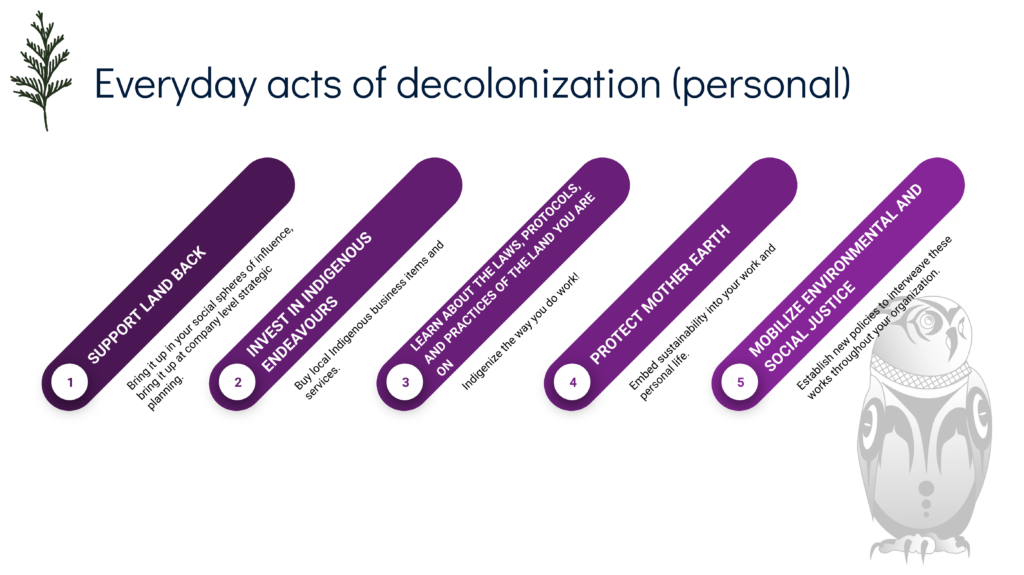
What can employees do to advance decolonization in their organizations?
People need to think critically across scales, in ways specific to their contexts. Pierre suggests looking at opportunities for decolonization across the “4 Ps”: professional practice, places, processes, and policies. For example, for “professional practice,” he suggests that employees learn the laws of the territories they are on and find ways to encourage peers on their learning journeys. He also described intention setting (during presentations) as a relevant professional practice.
Intention setting
At the start of presentations, meetings, and conversations, intention setting can be an important cultural safety and decolonization protocol. After you acknowledge the Indigenous territory on which you work, you can share your intentions as a way of being transparent about how you are entering the space, especially if you are planning to discuss sensitive subjects.
What can employees do if leadership is not on board?
Facilitators recommended taking action within your own sphere of influence, connecting with like-minded peers for strength, and keeping in mind that one day you may have the opportunity to be a leader and enact decolonization practices at the highest levels.
What do you say to people who are concerned that equity distracts from reconciliation or vice versa?
A zero-sum approach is very limiting, according to the facilitators. It creates a false idea of competition, when in fact equity and justice are shared aims. Pierre cautions against black-and-white thinking:
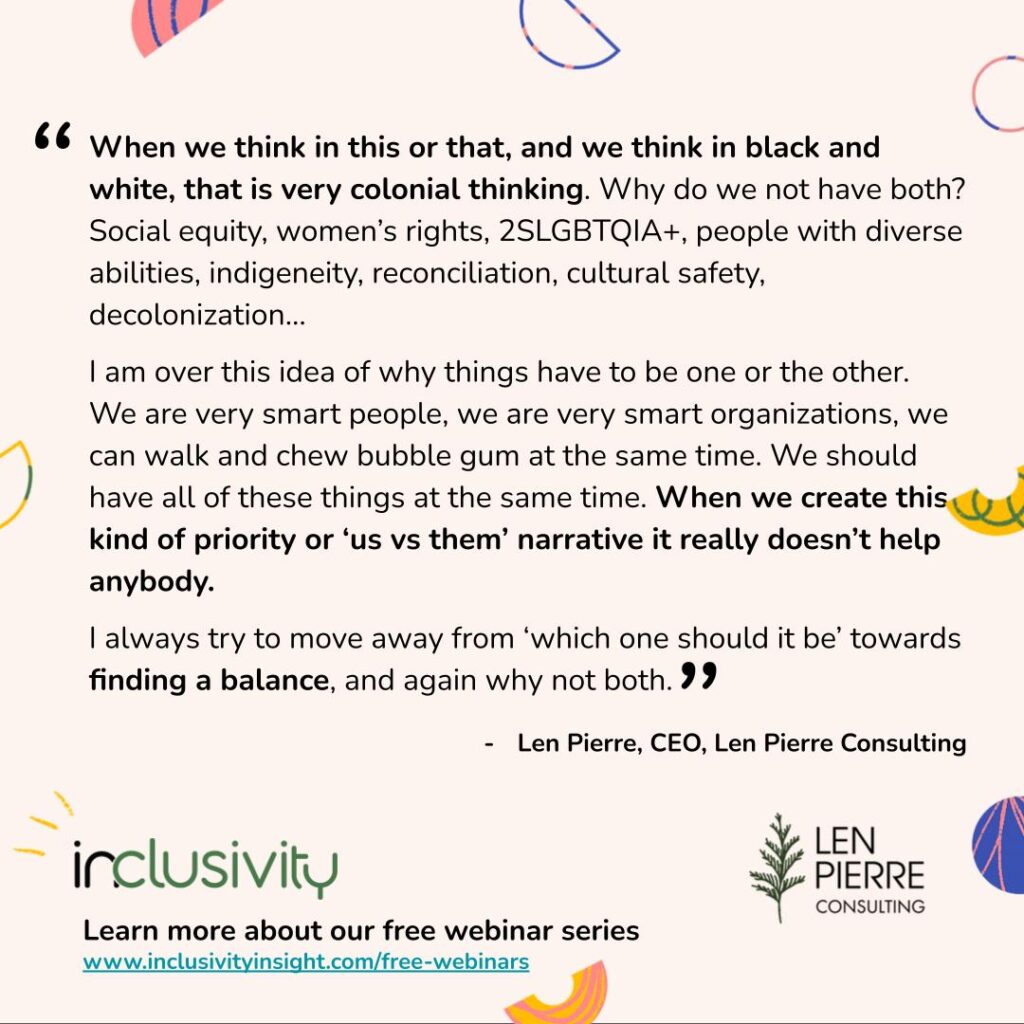
He encouraged participants to find solidarity and imagine transformative change for more just shared futures. Again, decolonization is not going to happen overnight. “It seems small, it seems insignificant, but all these little bits add up to a broader whole,” he said.
Watch a recoding of the webinar
Resources
- Embodying Indigenous Coast Salish Education: Travelling with Xé:ls the sister, mapping Katzie/q’iċəy’ stories and pedagogies by Kerrie Charnley
- Decolonizing Trauma Work by Rene Linklater
- Decolonization is for Everyone by Nikki Sanchez
- Pedagogy of the Decolonizing by Quetzala Carson




